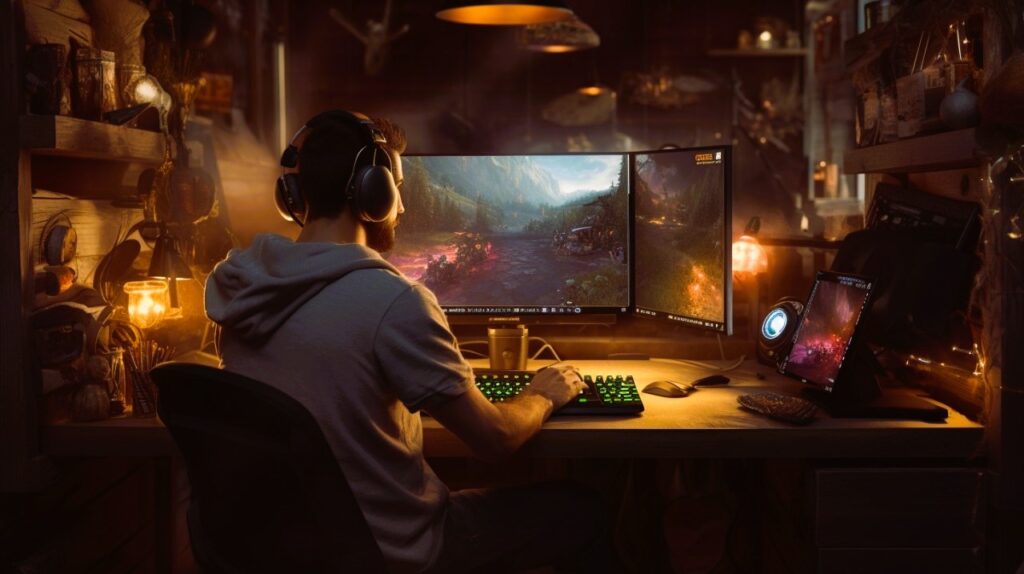Gaming has long been a cherished pastime for people around the world, offering a means of escape, entertainment, and social connection. Over the years, the landscape of gaming has evolved dramatically, from the early days of console wars to the era of cross-platform play and interconnected gaming communities. In this article, we’ll explore the evolution of gaming communities, from their humble beginnings to the interconnected ecosystems of today.
The Rise of Console Wars
In the early days of gaming, consoles like the Nintendo Entertainment System (NES) and the Sega Genesis dominated the market, each vying for supremacy in what became known as the “console wars.” Fans of each platform fiercely defended their chosen console, engaging in heated debates over which system had the better games, graphics, and overall experience.
The rivalry between Nintendo and Sega reached its peak in the 1990s with the release of the Super Nintendo Entertainment System (SNES) and the Sega Genesis. The so-called “bit wars” sparked fierce competition between the two companies, driving innovation and pushing the boundaries of gaming technology.
The Birth of Online Gaming

With the advent of the internet, gaming communities began to expand beyond the confines of local arcades and living rooms, allowing players to connect and compete with others from around the world. The rise of online gaming introduced a new era of multiplayer experiences, from early text-based MUDs (multi-user dungeons) to the massively multiplayer online role-playing games (MMORPGs) of today.
Games like “Quake” and “Counter-Strike” popularized online multiplayer gaming in the late 1990s and early 2000s, paving the way for the rise of esports and competitive gaming. Players could now form teams, compete in tournaments, and vie for glory on a global stage, forging bonds and rivalries with fellow gamers along the way. Did you like the article? Read also about the game Fortnite Fever.
Breaking Down Barriers: Cross-Platform Play
In recent years, the gaming industry has witnessed a significant shift towards cross-platform play, allowing gamers to play together regardless of the device they’re using. This move towards greater inclusivity and connectivity has been driven in part by the growing popularity of games like “Fortnite,” “Minecraft,” and “Rocket League,” which support cross-platform play across consoles, PCs, and mobile devices.
Cross-platform play has not only brought gamers together across different platforms but has also helped to break down barriers between gaming communities. No longer are players limited to competing against others on the same console—now, they can team up with friends and rivals from around the world, regardless of their preferred platform.
Building Bridges, Fostering Community
The evolution of gaming communities has also been marked by a greater emphasis on inclusivity, diversity, and positive social interaction. Gaming has become a powerful tool for building bridges and fostering connections between people of all backgrounds and identities.
From LGBTQ+ gaming communities to women in gaming initiatives, there are now countless spaces where gamers can come together to share their love of games and support one another. Online forums, social media groups, and streaming platforms like Twitch have become hubs for gaming communities, providing spaces for players to connect, share strategies, and celebrate their shared passion for gaming.

Looking to the Future
As gaming continues to evolve, so too will the communities that surround it. With the advent of virtual reality, augmented reality, and cloud gaming, the possibilities for gaming communities are greater than ever before. Whether exploring virtual worlds together in VR, competing in esports tournaments on a global stage, or simply connecting with friends across different platforms, the future of gaming communities is bright and full of potential.
Conclusion: Connecting Through Gaming
In conclusion, the evolution of gaming communities—from the console wars of the past to the cross-platform play of today—reflects the ever-changing landscape of gaming and the enduring power of games to bring people together. As technology continues to advance and gaming becomes more accessible than ever before, gaming communities will continue to grow and evolve, forging bonds and creating memories that will last a lifetime.
For more information on the evolution of gaming communities, visit Wikipedia.

